Blog
[Asakusa] Nakamise-dori Shopping Stret: One of Tokyo’s Oldest Shopping Streets
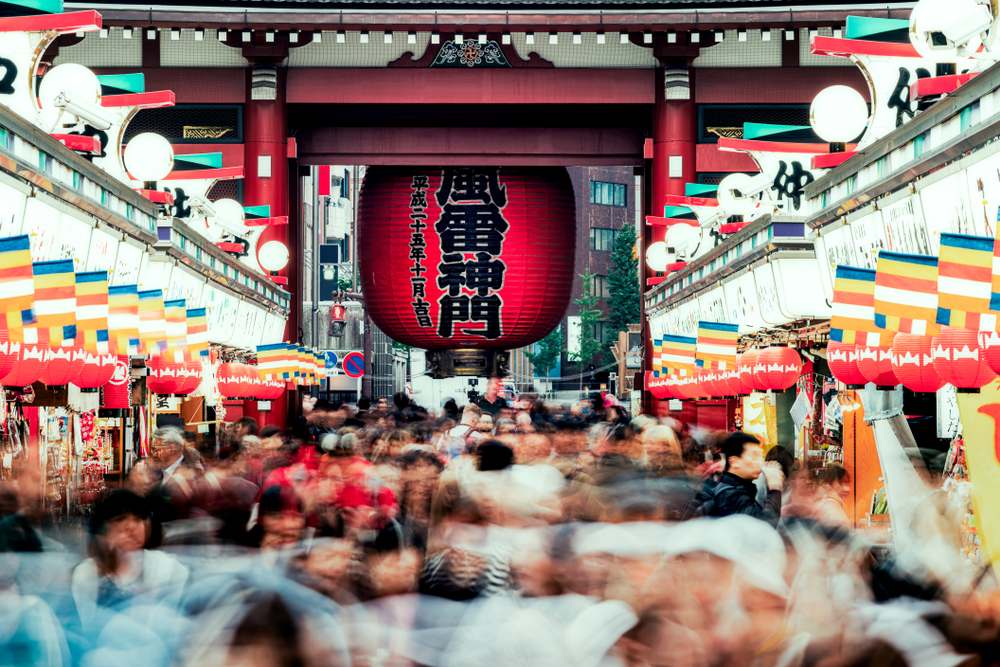
If there’s one shopping experience you shouldn’t miss on your visit to Tokyo, it’s Nakamise-dori Shopping Street in Asakusa. This vibrant lane lined with around 90 shops serves as the approach to Senso-ji Temple, one of Japan’s most iconic Buddhist temples, yet it buzzes with a festival-like energy nearly every day of the year. Whether you’re hunting for traditional souvenirs, sampling street snacks, or soaking in the historic atmosphere, Nakamise-dori delivers an unforgettable slice of old Tokyo. Here’s a brief guide to where Nakamise-dori is located, what to do and see along the way, and what to expect from one of Japan’s oldest shopping arcades.
Content
Where is Nakamise-dori Shopping Street in Asakusa, Tokyo?
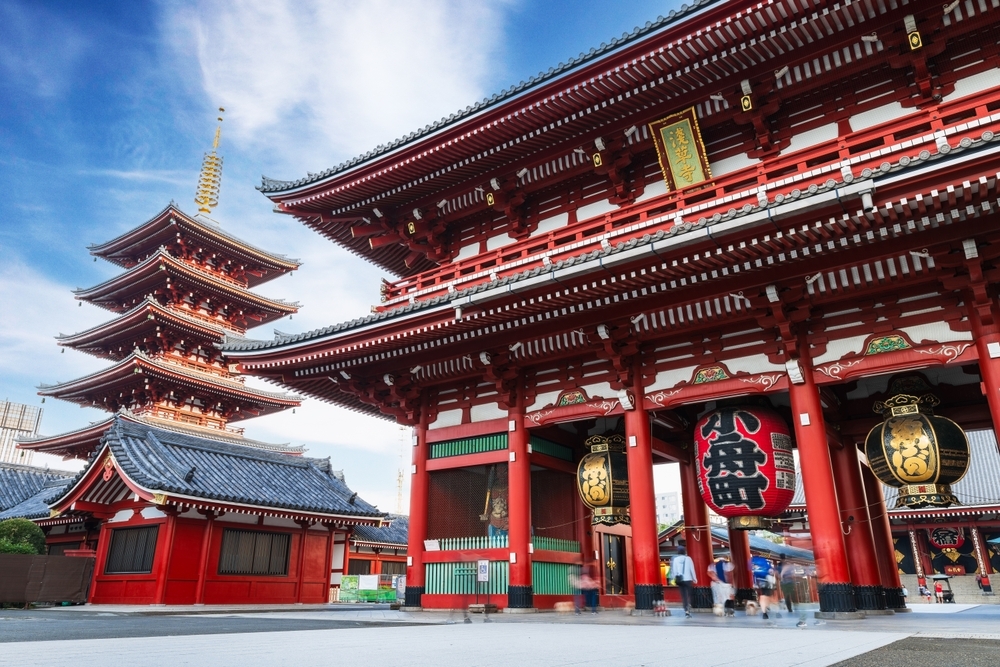
Nakamise-dori is a 250-meter-long historic shopping street in Asakusa with roots dating back to the late 17th century. The street stretches between the iconic Kaminarimon Gate (Thunder Gate) and Senso-ji Temple, one of Tokyo’s oldest Buddhist sanctuaries founded in the seventh century. At the entrance stands the towering Kaminarimon—a roughly 12-meter-tall wooden structure housing statues of Fujin and Raijin, the Wind God and Thunder God, along with a massive 700-kilogram red paper lantern.
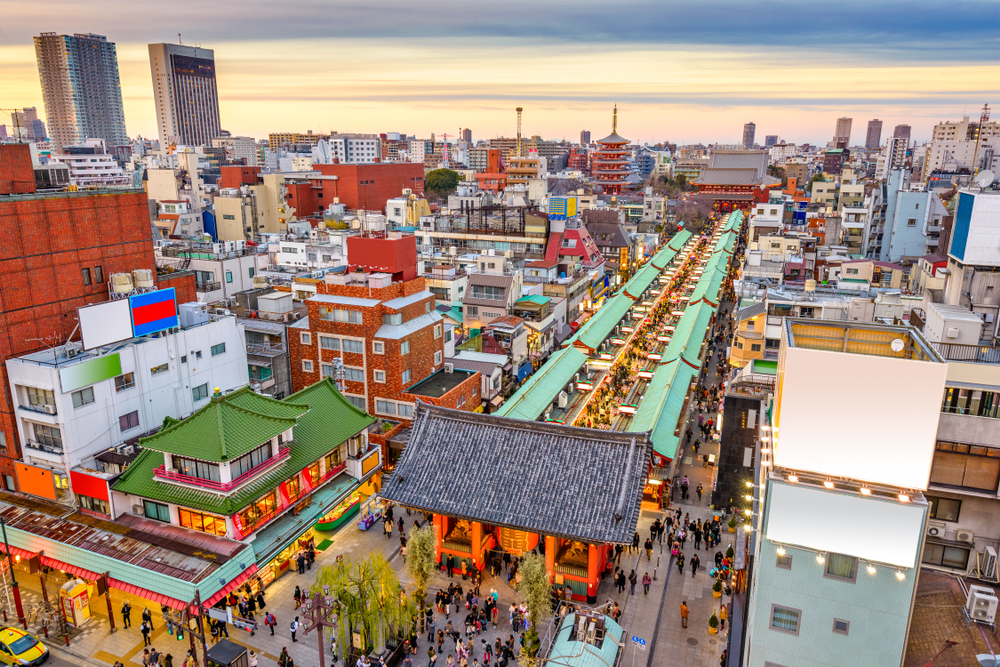
The pedestrian-only path ends in a plaza before the Hōzōmon (Treasure House Gate), the other massive entrance to Sensō-ji, with the temple’s striking five-storied pagoda visible just beyond the gate to the left.
From Asakusa Station, Nakamise-dori is accessible via the Tokyo Metro Ginza Line, Toei Asakusa Line, and Tobu Skytree Line. It’s just a 3- to 5-minute walk north to Kaminarimon, where Nakamise-dori begins and leads straight to the temple.
What to Do, Eat & See at Nakamise-dori Shopping Street
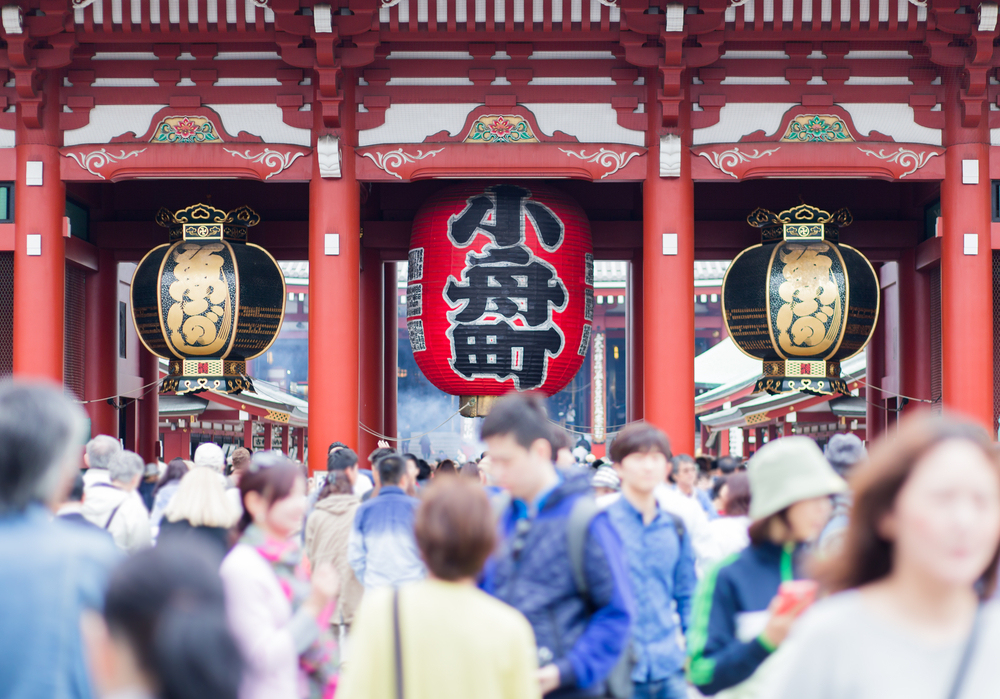
Stretching roughly 250 meters from the iconic Kaminarimon Gate to the base of Sensō-ji Temple, Nakamise-dori Shopping Street is lined with nearly 90 shops and stalls on both sides, offering first-time visitors a vibrant introduction to traditional Japanese culture and street shopping.
Whether you’re hunting for the perfect souvenir, sampling Tokyo street food, or simply soaking in the atmosphere on your way to Sensō-ji Temple, Nakamise-dori offers a sensory-rich experience that captures the heart of old Asakusa. Here’s what visitors can expect to do, see, and eat along Nakamise-dori:
What to Do:
- Browse traditional souvenir shops selling Japanese confectionery, folding umbrellas, kimono, yukata, and handmade crafts
- Pick up good-luck charms, omamori amulets, and omikuji fortunes related to Sensō-ji Temple
- Sample freshly made street snacks from food stalls and vendors
- Shop for unique Tokyo gifts like chopsticks, hand towels (tenugui), and character goods
Gyokushindo
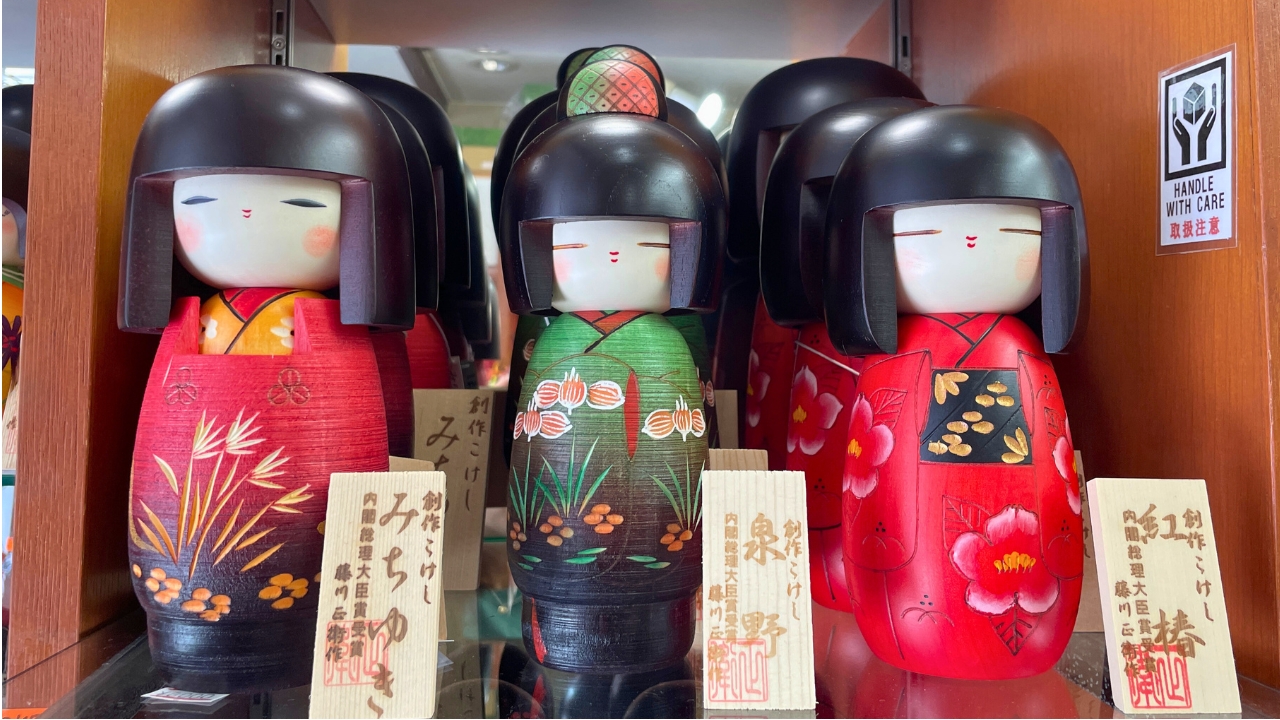
Founded in 1897, Gyokushindo is a souvenir shop specializing in delightful craft products that blend tradition with personalization. “Our most popular items are original wooden name tags and traditional crafts such as kokeshi dolls and wind chimes,” says Gyokushindo’s manager. “Japanese characters are popular all over the world, so customers are very happy to have their name engraved in Japanese.”
The shop’s original Kaminarimon wind chime is particularly special—handcrafted by Shinohara, a workshop that has been producing chimes since the Edo period (1603–1867), each piece carries centuries of craftsmanship in its delicate sound.
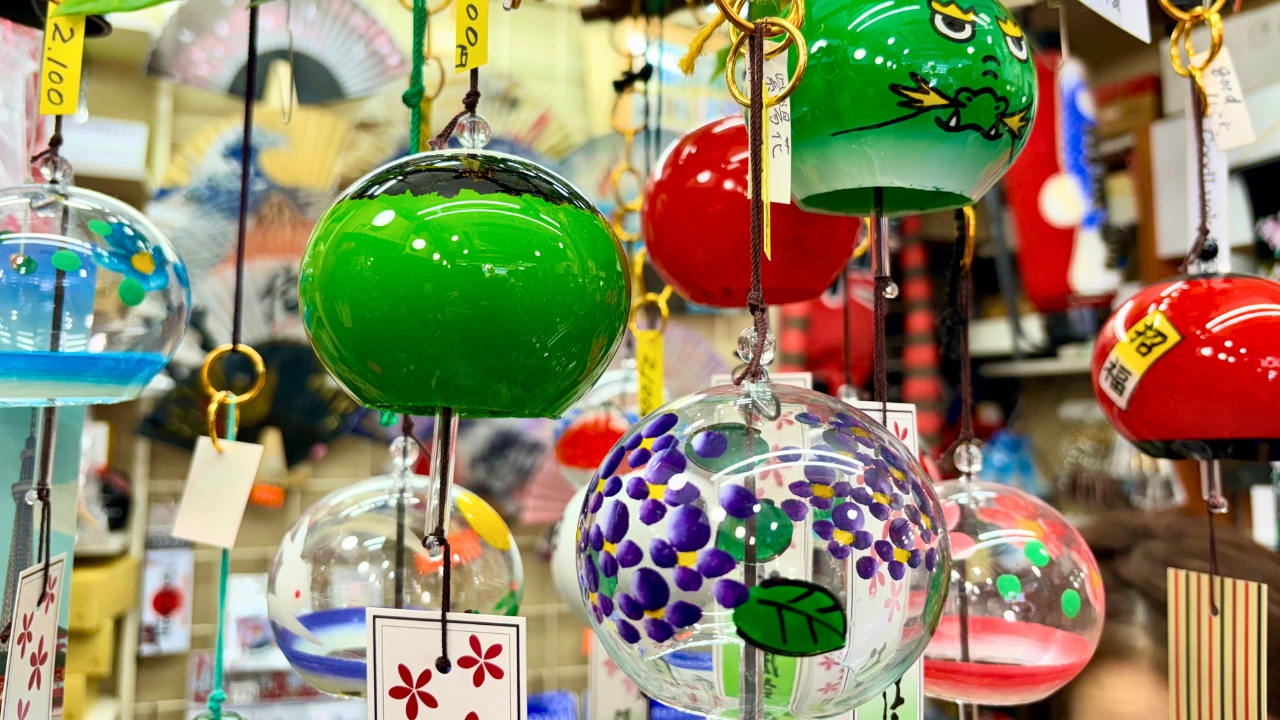
Gyokushindo
Address: 1-20-1 Asakusa, Taito-ku, Tokyo
Hours: 9:30 am – 5:30 pm
Closed: Wednesday
Website: https://gyokushindo.jp/
What to Eat:
- Ningyo-yaki: small sponge cakes filled with sweet red bean paste
- Senbei: crispy rice crackers in savory and sweet varieties
- Kibi-dango: skewered mochi rice dumplings coated in sweet soybean powder
- Manju: soft steamed buns with various fillings
- Age-manju: deep-fried sweet buns
- Melonpan: sweet melon-shaped bread
- Soft-serve ice cream in flavors like matcha, sakura, and black sesame
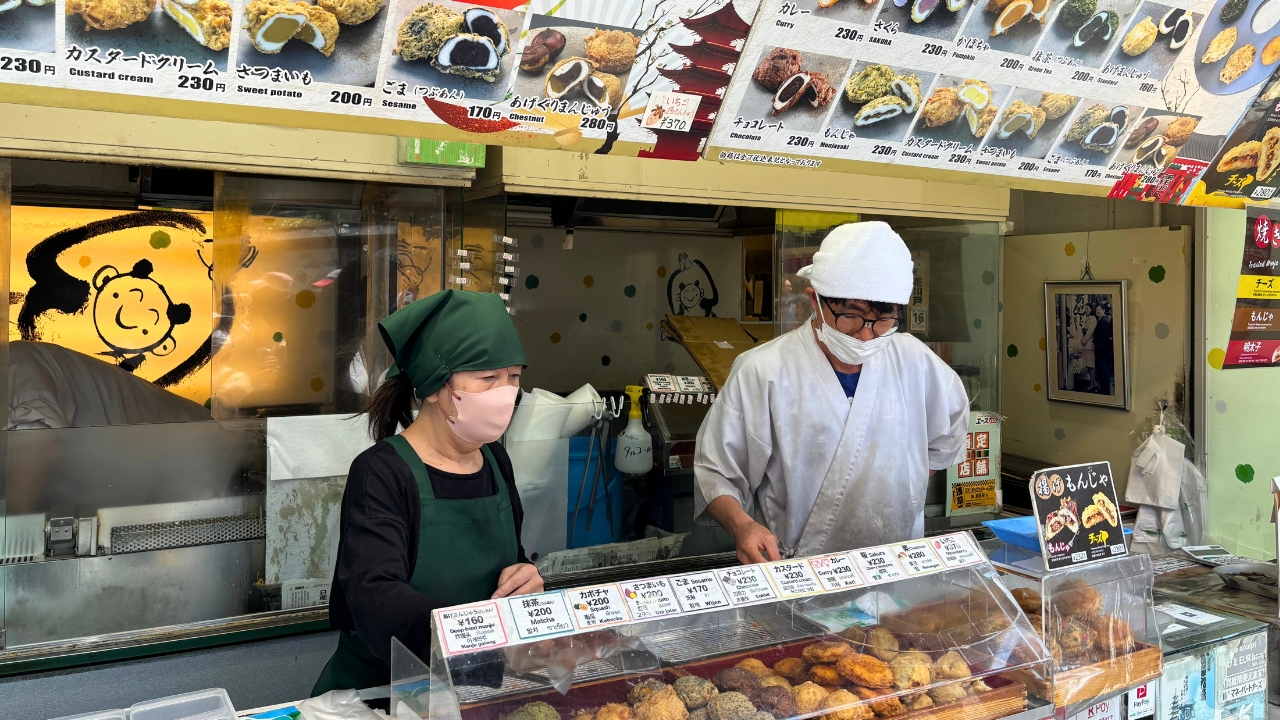
Just before the Hozomon Gate is Asakusa Kokonoe. Established about 30 years ago, Asakusa Kokonoe sells delectable agemanju—deep-fried buns stuffed with anko azuki red-bean paste. Surrounded by a crispy batter, they come in 13 varieties including sesame, matcha, curry, and pumpkin. “We’re proud of the fact that we use only very high-quality oil, so our buns don’t have an oily smell after frying,” says Asakusa Kokonoe’s owner. “Our biggest seller is the standard-variety agemanju.”

Asakusa Kokonoe
Address:2-3-1 Asakusa, Taito-ku, Tokyo
Hours: 9:30 am-7:00 pm
Closed: Open every day
Website: https://agemanju.jp/shop-information/
Nakamise-dori Shopping Street Opening Hours
Shops on Nakamise-dori Shopping Street typically open between 9:00 and 10:00 am, with most operating until about 6:00 or 7:00 pm. The street itself remains accessible throughout the day, meaning visitors can stroll through anytime, even when individual shops have closed.
For a completely different experience, consider visiting Nakamise-dori at night after the shops have closed. The street transforms into a peaceful, atmospheric walkway lit by traditional lanterns, offering a serene contrast to the daytime hustle.
When is the Best Time to Visit Nakamise-dori Shopping Street?
For first-time visitors, the best time to visit is in the morning, especially just as the shops open, when the crowds are thinner and it’s easier to browse without jostling for space. Weekdays or dates outside major Japanese festival periods also offer a less crowded experience, letting you take in the atmosphere at a more relaxed pace.
That said, Nakamise-dori truly comes alive during peak seasons. Cherry blossom season, autumn leaves, and New Year celebrations bring the street to life with vibrant decorations and festive energy—not to mention special New Year sales that draw both locals and tourists hunting for deals. Expect higher visitor numbers during these times, but the lively buzz is part of the charm.
How to Get to Nakamise-dori Shopping Street from HOTEL TAVINOS Asakusa
Getting to Nakamise-dori Shopping Street from HOTEL TAVINOS Asakusa is just a short 5-minute walk away. Simply head north from the hotel toward Kaminarimon Gate, the iconic red lantern entrance to Sensō-ji Temple. Once you pass through the gate, you’ll find yourself at the southern entrance of Nakamise-dori, ready to explore the bustling shops and street vendors that line this historic shopping street.
If you need any directions or recommendations for what to see along the way, the staff at HOTEL TAVINOS Asakusa are always happy to help. Whether you’re heading out for morning shopping or an evening stroll, Nakamise-dori’s prime location makes it one of the most convenient attractions to visit during your stay.
Nakamise-dori Shopping Street
Access: about 3-minute walk from Tokyo Metro, Toei Subway or Tobu Railway Asakusa Sation
Website: https://asakusa-nakamise.jp/e-index.html
Writer
Tim Hornyak
Tim Hornyak has lived in Japan for more than 20 years, writing about travel, architecture, technology and business for domestic and international media.
